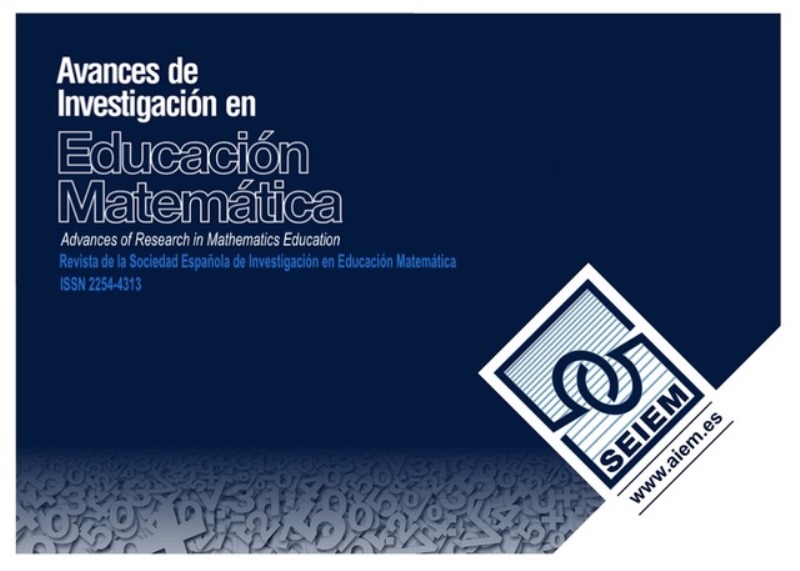Algebrization levels of school mathematics practices. Networking of the Onto-semiotic and Anthropological perspectives
DOI:
https://doi.org/10.35763/aiem.v1i8.105Keywords:
Algebraic reasoning, primary education, secondary education, onto-semiotic approach, teachers’ educationAbstract
Based on the onto-semiotic approach to mathematical knowledge and instruction a characterization of algebraic reasoning in primary education has been proposed, distinguishing three levels of algebraization. These levels are defined taking into account the types of representations used, generalization processes involved and the analytical calculation at stakes in mathematical activity. In this paper we extend this previous model by including three more advanced levels of algebraic reasoning that allow to analyze mathematical activity carried out in secondary education. These new levels are based on the consideration of 1) using and processing parameters to represent families of equations and functions; 2) the study of algebraic structures themselves, their definitions and properties. Furthermore, concordances and complementarities of this model with the three stages of algebrization proposed under the anthropological theory of didactics are analyzed
Downloads
Downloads
Published
How to Cite
Issue
Section
License
The articles published in this journal are under a license Creative Commons: By 4.0 España from number 21 (2022).
Authors who publish with this journal agree to the following terms:
- Authors retain copyright and keep the acknowledgement of authorship.
- The texts published in this journal are – unless indicated otherwise – covered by the Creative Commons Attribution 4.0 international licence. You may copy, distribute, transmit and adapt the work, provided you attribute it (authorship, journal name, publisher) in the manner specified by the author(s) or licensor(s). The full text of the licence can be consulted here: http://creativecommons.org/licenses/by-nc/4.0.
- Authors are able to enter into separate, additional contractual arrangements for the non-exclusive distribution of the journal's published version of the work (e.g., post it to an institutional repository or publish it in a book), with an acknowledgement of its initial publication in this journal.
- Authors are permitted and encouraged to post their work online (e.g., in institutional repositories or on their website) prior to and during the submission process, as it can lead to productive exchanges, as well as earlier and greater citation of published work (See The Effect of Open Access).









